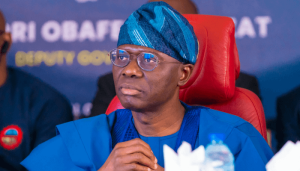Nigeria’s Debt Profile Rises To N50tn – Report

The Centre for the Promotion of Private Enterprise (CPPE) has said Nigeria’s debt profile could be in excess of N50 trillion.
Naija News reports that the Debt Management Office (DMO) had earlier reported that the country’s debt profile has risen to N39.56tn.
But according to the Chief Executive Officer, CPPE, Dr Muda Yusuf, the new economic report is a review of Nigeria’s economic performance for the first quarter of 2022.
The CPPE boss stated that borrowings from the Central Bank of Nigeria (CBN) were yet to be added to the debt stock reported by DMO.
He argued that it was better for Nigeria to take loans from the World Bank, International Monetary Funds (IMF) and other institutions as they were cheaper.
Yusuf said the government should have the political will to cut expenditure and undertake reforms that could scale down the size of government, reduce governance costs, ease the financial burden on the government and boost revenue.
He said: “The rising debt profile of government raises serious sustainability concerns.
“However, when we take account of borrowings from the CBN and the stock of AMCON debt, the debt profile would be in excess of N50tn.
“Although government tends to argue that Nigeria does not have a debt problem, the country has a revenue challenge.
“And this would typically become a problem if the revenue base was not strong enough to service it sustainably.
“Government’s actual revenue could hardly cover the recurrent budget, which implies that the entire capital budget and part of recurrent budget are being funded from borrowing which is not sustainable”, he said.
“We cannot continue to increase borrowing on account of the relatively low debt/GDP ratio.
“We do not service debt with GDP, but with revenue. Close to 40 per cent of our GDP does not contribute appreciably to revenue.
“It is important to ensure that the debt is used strictly to fund capital projects, especially infrastructure projects, that would strengthen the productive capacity of the economy.”
This article was originally published on Nigeria News









